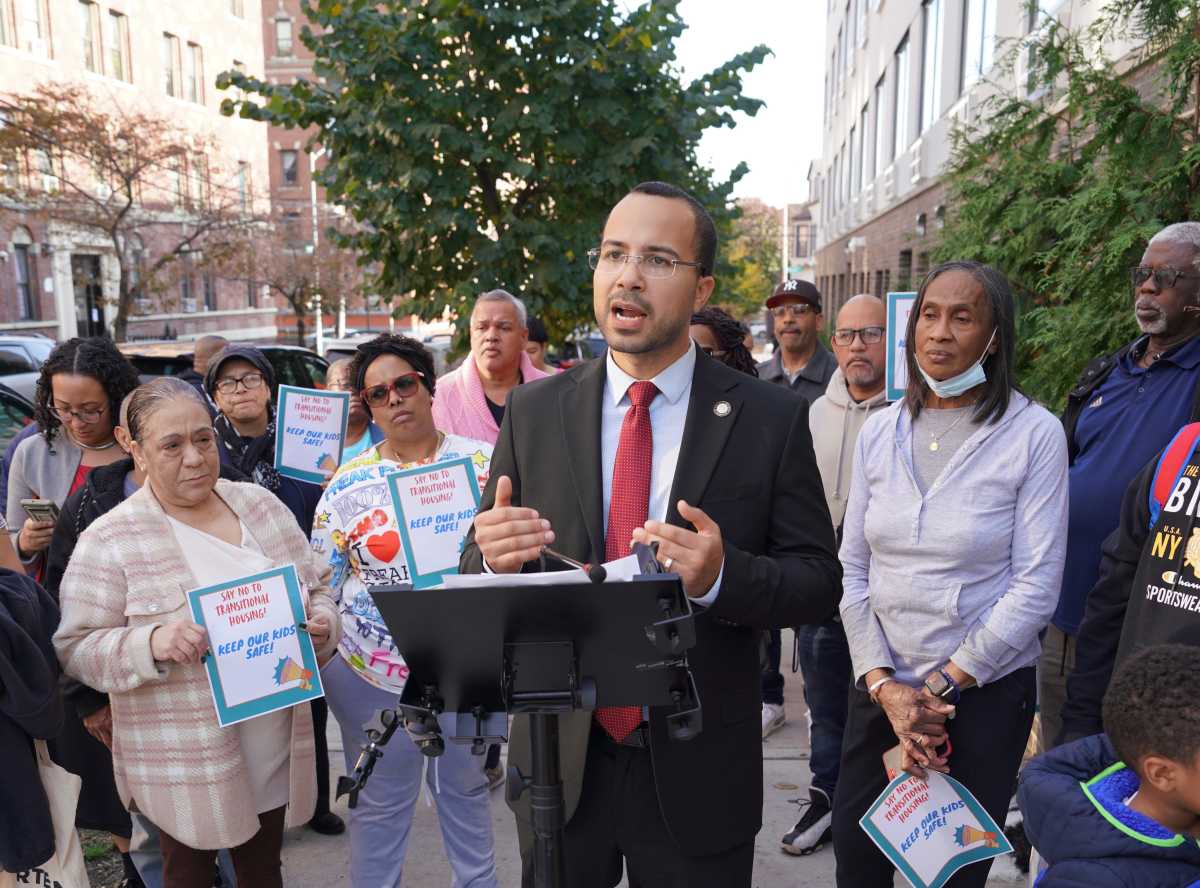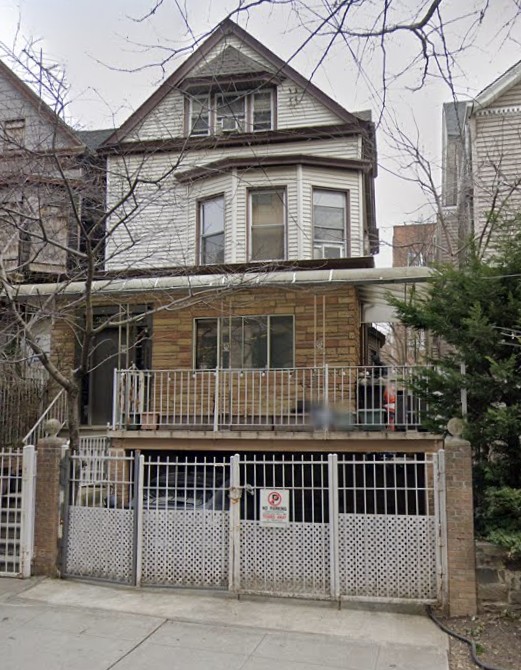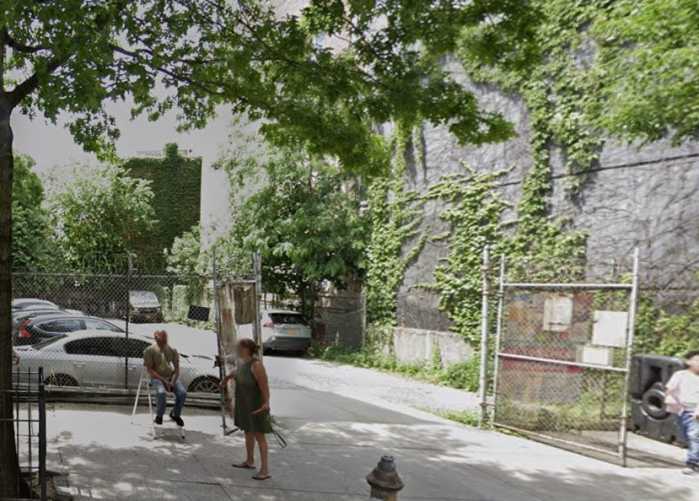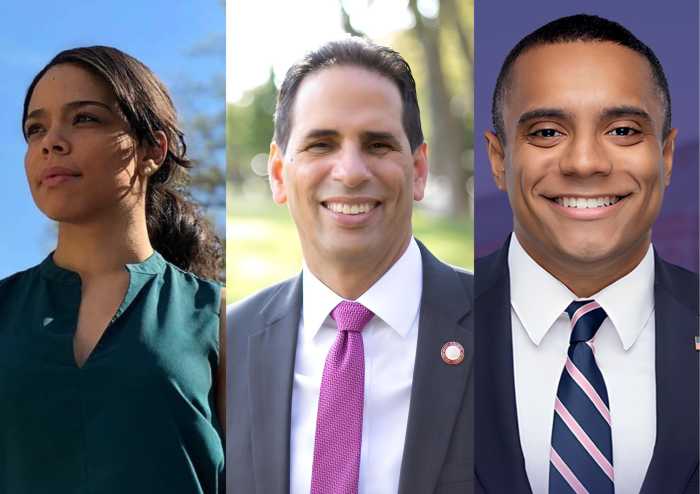The Mayor’s Office pushed back on protests from Bronx community members on a proposed transitional housing project in Fordham saying that the project meets the community board’s needs for more affordable housing and the Borough President’s commitment to reducing recidivism in the Bronx despite her stated opposition.
The project, proposed by the Mayor’s Office of Criminal Justice would house up to 83 adult males who are involved in the justice system. It would house men who are experiencing homelessness, at risk of further justice system involvement or those required to have post-release housing, according to City Hall.
The proposed site at 2586 Bainbridge Avenue is currently a parking lot and would need to be developed. If completed, the transitional housing facility would have 83 beds, with the men dispersed among one- and two-bedroom units, according to City Hall.
A City Hall Spokesperson confirmed that the site is under review but emphasized that the proposal aligns with the Mayor’s commitment to addressing the housing crisis and supporting New Yorkers involved in the justice system.
“At this site, we’re aiming to fill a gap in the transition from housing instability to permanent housing for those impacted by the criminal justice system,” said a City Hall spokesperson. “After conducting a citywide search for available and appropriate sites, this location offers the best foundation for formerly incarcerated New Yorkers hoping to re-enter society.”
The response follows a rally opposing the proposed transitional housing facility last week in which Bronx Council Member Oswald Feliz, Bronx Community Board 7, The Bainbridge Avenue and Poe Park Homeowners Association, Assembly Member George Alvarez, and other local elected officials urged the Mayor to consider another site for the project in accordance with the city’s “fair-share” principles which require equitable citing of both city amenities and supportive services.
Bronx representatives penned a letter in April to Mayor Adams urging him to halt plans to place the project on Bainbridge Avenue. New York City Council member Oswald Feliz, Congress Member Adriano Espaillat, State Assembly Member George Alvarez and Bronx Borough President Vanessa L. Gibson all signed on to the letter which accused the administration of overburdening the Bronx with social services.
“Our community has consistently voiced concerns regarding the over saturation of facilities such as homeless shelters and substance abuse centers,” representatives said in the letter. “The Fordham Road community in the Bronx serves as a prime example, where rather than receiving essential resources and community centers, it continues to face the influx of new social services programs solely.”
The offices of Council Member Oswald Feliz and Borough President Vanessa L. Gibson did not immediately respond to requests for comment.
Complaints about neighborhoods in the Bronx overburdened by shelters and transitional housing are not new. For decades, the city has been required to make a concerted effort to make sure NYC residents get fair access to city amenities like parks and libraries, but also that communities shoulder their fair share of the burden in providing services to unhoused New Yorkers or residents facing addiction and mental health issues.
A fall 2023 report by NYC Comptroller Brad Lander found that the city was not living up to its “fair-share” obligations to equitably distribute city facilities and services among New York City communities noting that neighborhoods of color have disproportionately high numbers of facilities like shelters and transitional housing.
NYC Comptroller Lander, commented on the report’s findings at the time of its release in 2023.
“Some neighborhoods have far more than their share of homeless shelters and waste transfer sites, and the differences are often along lines of race and income,” said Comptroller Lander. “As we tackle issues from housing affordability to climate change while building a compassionate and inclusive city, the City’s siting decisions cannot be driven by not-in-my-backyard politics and path-of-least-resistance planning, which solidifies and deepens racial and economic disparities.”
But whether or not this is the case in the Fordham neighborhood is at the center of the debate. City Hall pushed back on the community’s concerns that the neighborhood was overburdened with supportive services like shelters and transitional housing citing figures from 2015 showing that the community district’s bed to population ratio of 17.6 was below the citywide rate of 18.4, a number that hasn’t been updated in nearly a decade.
City Hall said that its proposed partner in operating the transitional housing facility, The Fortune Society, has been a model neighbor in other communities that were originally opposed to supportive housing. Fortune Society is a nonprofit focused on supporting successful reentry for formerly incarcerated individuals through social services and housing programs. City Hall pointed to Castle Gardens, a Fortune Society operated transitional housing project in West Harlem as an example of how transitional and supportive housing projects can be good neighbors.
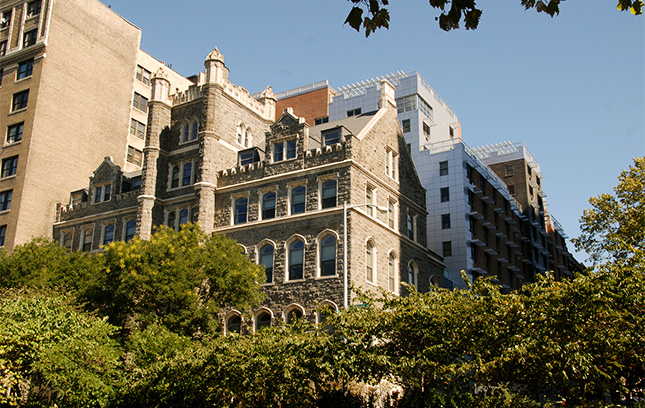
The City University of New York John Jay College of Criminal Justice authored a report based on Fortune Society’s approach to community engagement for the Castle Gardens project. It looked at the steps the nonprofit took to change community sentiment toward the West Harlem transitional housing project.
The report quoted an anonymous Community Board member talking about their change in perspective.
“[Fortune] came up against a community who didn’t know them and was distrustful of them and of the work they did, and it was mostly distrustful of the population they served,” the report said. “What [Fortune] promised was they would be regular visitors to the Community Board, so that anytime anything happened they would be there to address it.”
Manhattan Community Board 9 did not immediately respond to requests for comment on its relationship with Fortune Society or Castle Gardens.
A spokesman for Fortune Society said that it does not have a lease signed for the upcoming 2586 Bainbridge Ave. facility and has only been involved in preliminary discussions with the Mayor’s Office about providing housing services in that area.
“Please note that The Fortune Society values community input and understands the importance of engaging with neighborhood residents and leaders,” the spokesperson said. “Should the project proceed, we remain committed to working closely with local stakeholders to ensure transparent communication and address any community concerns.”

